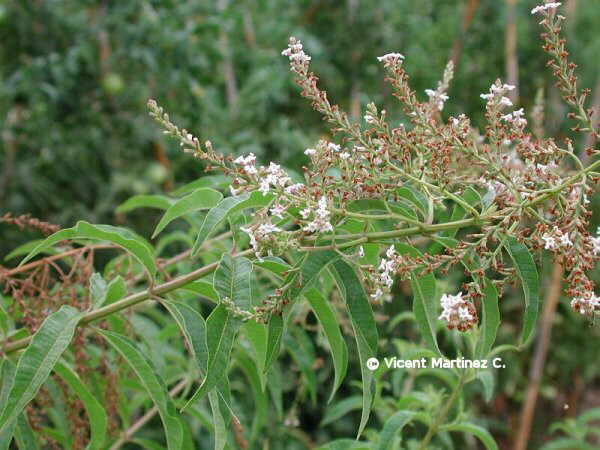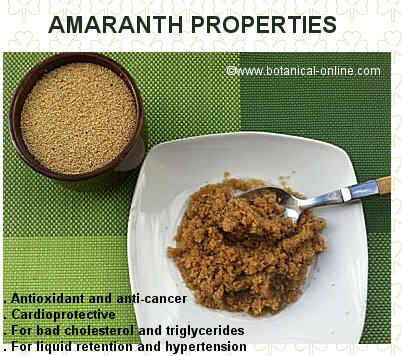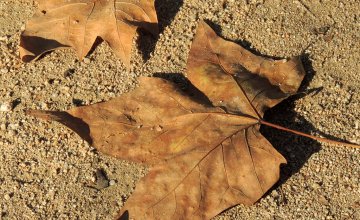Contents
- 1 Medicinal and nutritional properties of Jerusalem artichoke
- 1.1 BENEFITS OF JERUSALEM ARTICHOKE
- 1.2 Jerusalem artichoke contains a lot of fiber
- 1.3 What is inulin good for?
- 1.4 Jerusalem artichoke for diabetes
- 1.5 Jerusalem artichoke for low-fat diets and “bad cholesterol”
- 1.6 Jerusalem artichoke for digestive problems
- 1.7 Toxicity of Jerusalem artichoke
- 1.8 Side effects of Jerusalem artichoke
Medicinal and nutritional properties of Jerusalem artichoke
BENEFITS OF JERUSALEM ARTICHOKE
Jerusalem artichoke contains a lot of fiber
Jerusalem artichoke (Helianthus tuberosus) is an annual plant of the Compositae family, closely related to sunflower.
Jerusalem artichoke is notable for its high content of inulin, a type of fiber that is also found in artichoke, dandelion or chicory.
This plant is used for human consumption, by means of consuming its tubers, which can also be used in phytotherapy.
What is inulin good for?
Inulin is a natural dietary fiber whose intake helps lowering cholesterol and blood sugar. It also has a prebiotic effect for the activity of bifidobacteria in the intestine.
Jerusalem artichoke is so wealthy in this component that this plant is one of the best industrial sources of inulin.
Other medicinal component in the Jerusalem artichoke is heliangine. These bitter principle or sesquiterpene lactone contains suitable properties for a better digestion.
Jerusalem artichoke for diabetes
 Flowers of Jerusalem artichoke
Flowers of Jerusalem artichoke
Because it is high in inulin, Jerusalem artichoke helps regulate blood sugar levels in patients with diabetes.
The tuber contains, besides fiber, minerals collaborating in this antidiabetic action, such as copper, magnesium, manganese and zinc.
Inulin is a soluble fiber that slows the absorption of nutrients, improving digestion of sugars and benefiting people with diabetes.
Jerusalem artichoke for low-fat diets and “bad cholesterol”
Jerusalem artichoke is a very suitable food to lose weight and to improve cardiovascular health. It can be used to replace potato diets. The dietary fiber it contains brings fullness, and together with its low-fat content, makes this food a good ally in diets for obesity.
Unlike potato, Jerusalem artichoke provides very few calories in the diet. This contains 25kcal. per 100g., a third of what potato gives us (86kcal. per 100g.).
The fiber it contains is a very cleansing one, as it helps lower cholesterol because it captures some of the fat eaten thus it prevents its absorption. These characteristics make it a suitable food for people with cardiovascular disease, to treat “bad cholesterol “, as well as for cleansing diets.
Jerusalem artichoke for digestive problems
Jerusalem artichoke contains heliangine, a bitter principle with digestive properties. This component stimulates the secretions of the stomach (stomachic) and gallbladder (cholagogue), being a remedy for indigestion, dyspepsia or slow digestion.
Intestinal inulin is part of the prebiotic fiber, meaning that it ferments in the intestine, helping to improve bowel habits, and to maintain a healthy intestinal flora.
| Inulin and its derivatives, called fructooligosaccharides (FOS) are components which can not be absorbed by the body, so that they do not contain any calories. The role of inulin is to perform a natural brushing of the intestines, as well as, during its passage through the digestive tract, to capture fats and cholesterol in the body, helping to purify the liver. |
This fiber helps combat occasional constipation, helps reduce cholesterol and triglycerides in the blood and reduces the risk of atherosclerosis.
During its passage through the intestinal tract, inulin fermentation stimulates the growth of beneficial microorganisms or intestinal flora, reducing pathogenic ones.
The benefits of maintaining good intestinal flora are numerous: it has been shown that a healthy intestinal flora increases the body’s immunity and the absorption of minerals, especially calcium. According to these properties, a diet rich in inulin prevents osteoporosis.
This type of fiber is also associated with a lower risk of colon cancer.
The Jerusalem artichoke can be a very suitable food for celiac diets where fiber intake is often scarce.
Toxicity of Jerusalem artichoke
- Allergy: The plant contains an allergen component, sesquiterpene lactones, common in plants of the Compositae family. Individuals allergic to other plants of the Compositae family may also be allergic to the Jerusalem artichoke.
- Contact dermatitis: contact with the fresh plant can cause dermatitis.
- Stomach upset: People with a low tolerance to inulin or fructose should avoid eating Jerusalem artichokes. They can cause severe abdominal pain.
Side effects of Jerusalem artichoke
The Jerusalem artichoke is rich in inulin, a type of fiber with prebiotic effect and intestinal regulator. However, some people may be intolerant to this fiber, causing them flatulence, abdominal pain and digestive discomfort.
| Some people may feel bloated or experience abdominal pain after eating artichokes. Generally, people suffering bloating after eating artichokes, will probably feel the same with Jerusalem artichoke, since both foods are rich in inulin. |
![]() More information on Jerusalem artichoke.
More information on Jerusalem artichoke.








